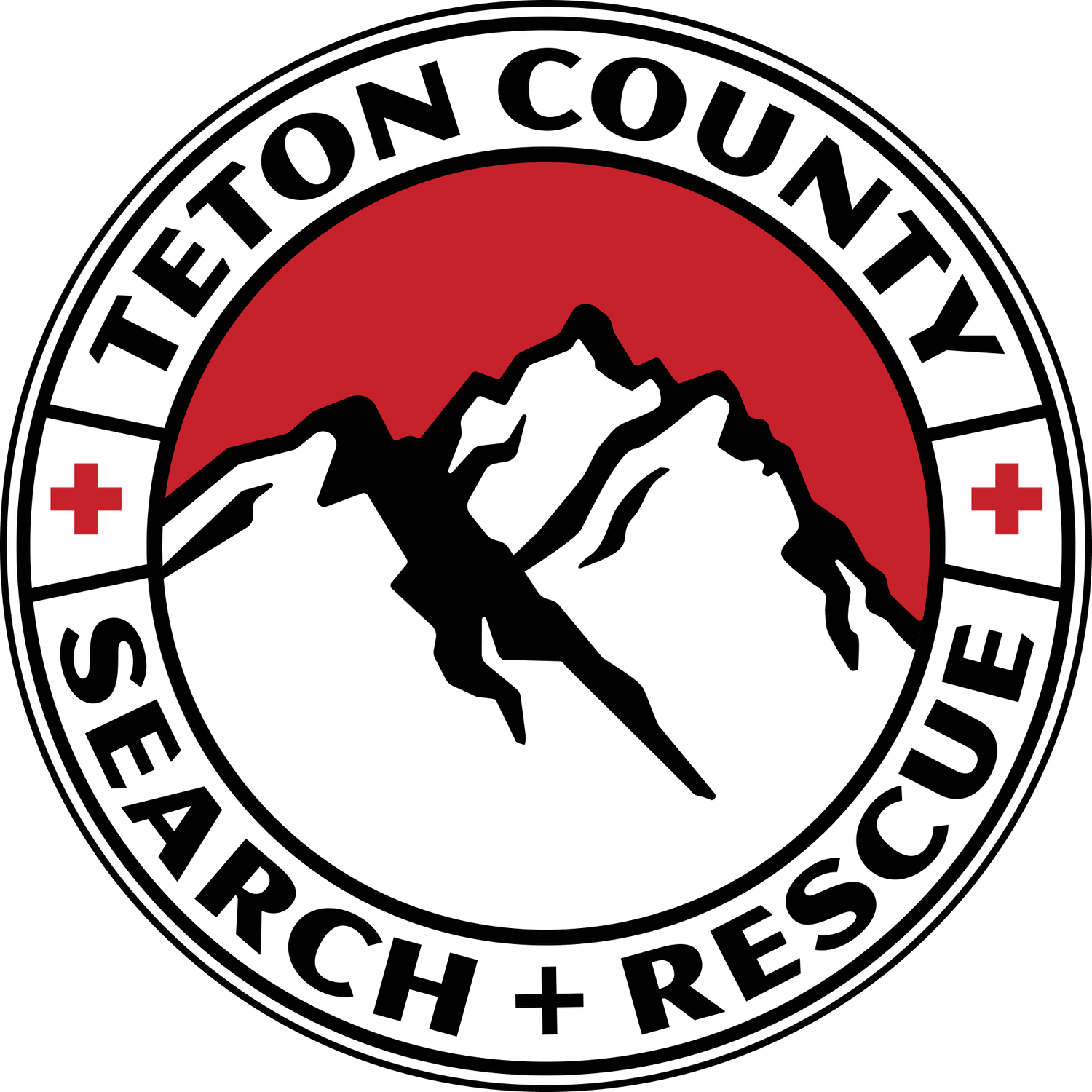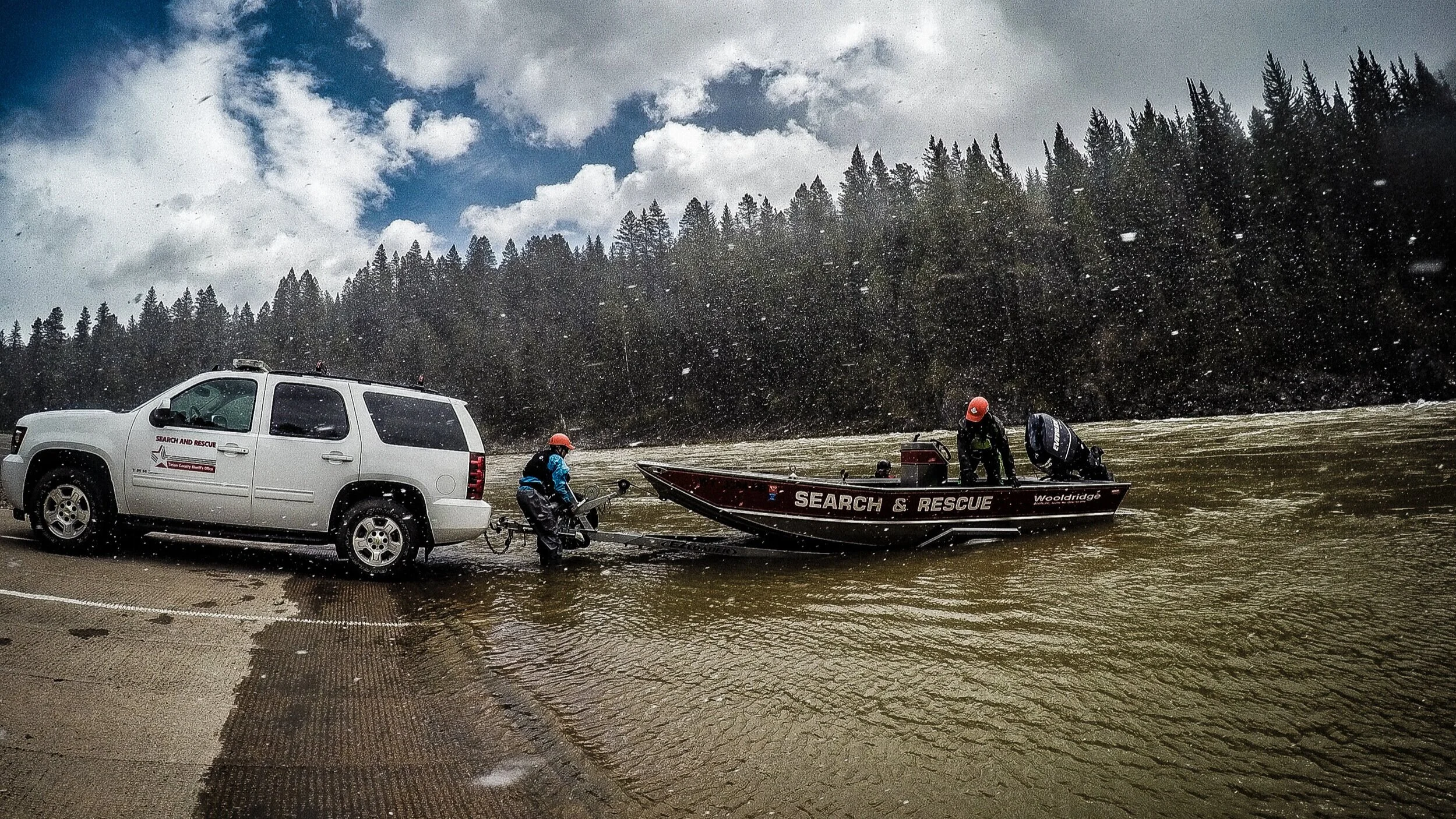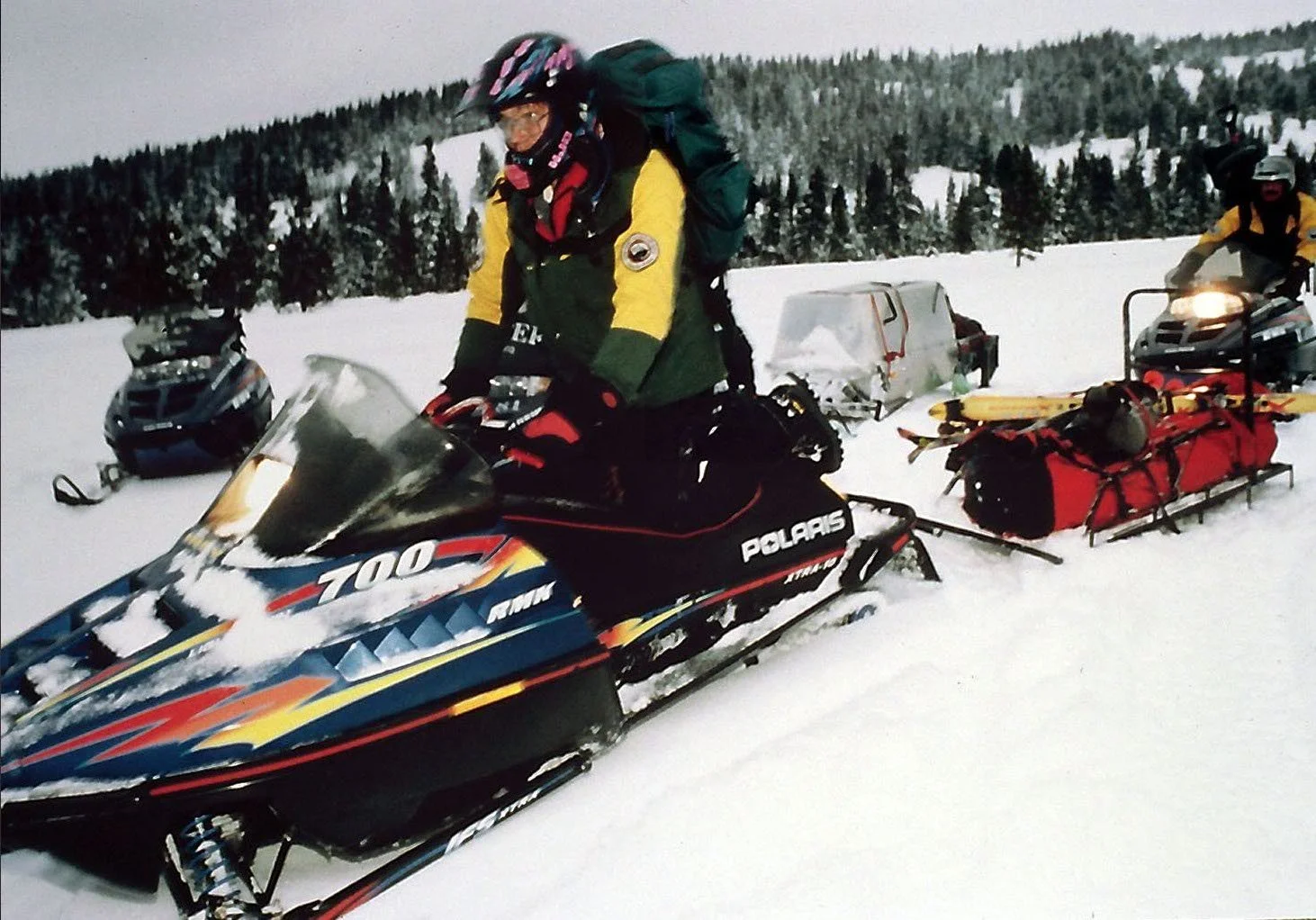With Old Bill’s Giving Season on us, it's important to reflect on the values that have been baked into 30 years of Teton County Search & Rescue. A particularly important one is doing whatever it takes to help someone get out of the backcountry alive. Back in the early days of TCSAR, volunteers often used whatever tools they had available—including their own snowmobiles.
"I was the motorhead of the team, so I was more into using the snowmachine," says John Davidson, a TCSAR volunteer for 16 years, starting with the team in 1995. "We could pack some gear in, tow a toboggan behind us, and then tow you out to an ambulance."
"It was pretty common for the team to use snowmobiles for rescues back then," he says. "We didn’t always have access to a helicopter, and the weather wasn't always good. When we could get a helicopter, it was a race to see if we could get there before they could."
John Davidson responds to a backcountry emergency in the mid 1990s. Photo: TCSAR Archive
Being well-versed in snowmachines remains critically important for TCSAR. Fast forward three decades to the winter of 2022-23, and the team responded to 18 rescue calls for lost or injured snowmobilers.
Here are a couple of things to remember about donating to TCSAR during Old Bill's:
TCSAR volunteers respond to more than 100 calls every year, with 120-plus coming in the last two consecutive years.
In order to stay Rescue Ready, TCSAR volunteers need your support to conduct all kinds of different training and rescue scenarios, like snowmobile training and avalanche rescue training. That hasn't changed since John Davidson helped train up less experienced riders three decades ago.
We all stand on the very strong and capable shoulders of those who came before us.
Thank you for supporting TCSAR—then and now.







